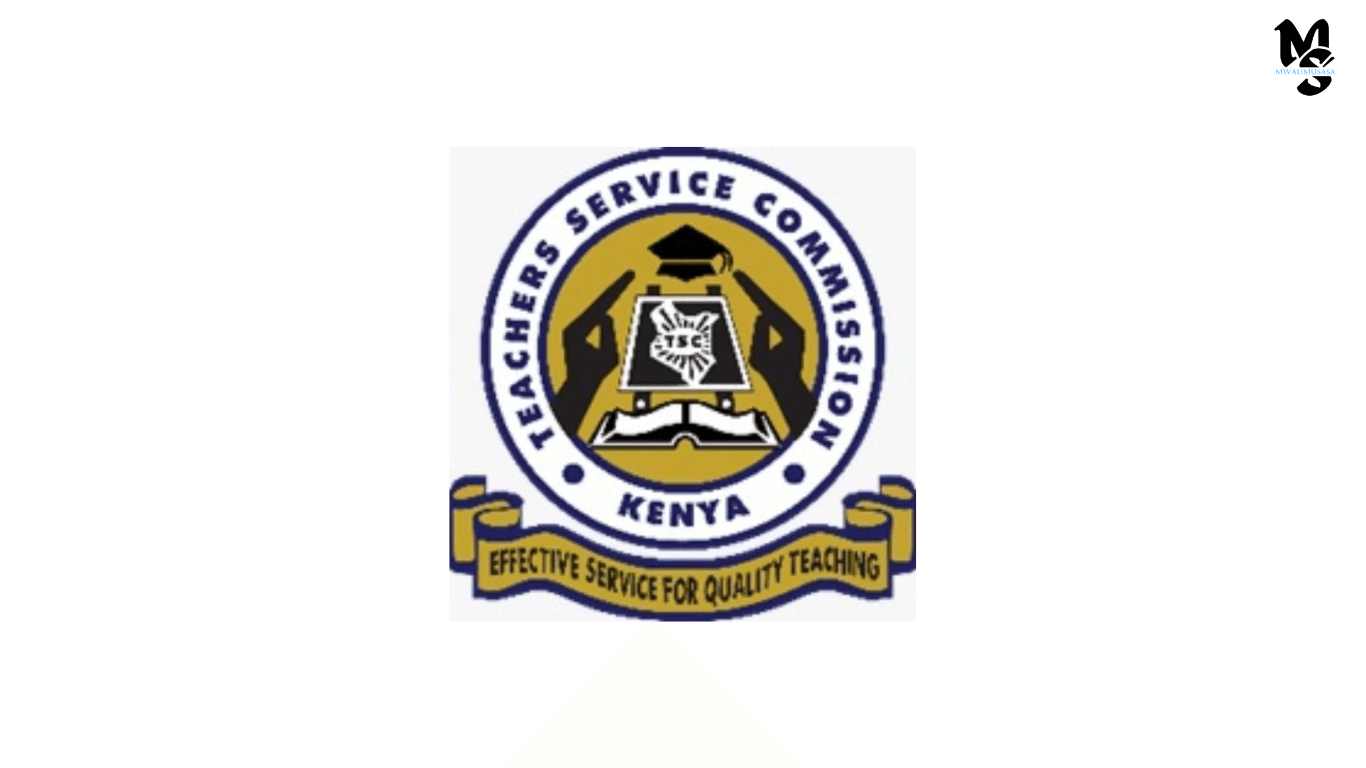Understanding Your Rights in TSC Disciplinary Procedures

A logo of the TSC

Introduction: The Importance of Knowing Your Rights in Disciplinary Cases
Understanding your rights in the context of TSC disciplinary action is crucial for every teacher. The disciplinary process often involves complex regulations and procedures that can significantly impact a teacher’s career and personal life. Being well-informed about these rights enables educators to navigate potential challenges effectively, ensuring fair treatment throughout any disciplinary case arising from teacher misconduct or performance issues.
When teachers face allegations that may lead to disciplinary action, they may feel vulnerable and anxious about the outcome. In moments like these, recognizing their rights as outlined by TSC rules empowers teachers. This comprehension fosters a sense of security, knowing that established protocols exist to protect them from arbitrary or unjust treatment. By being aware of their rights, teachers can better advocate for themselves during these challenging situations.
Moreover, understanding the disciplinary process allows educators to respond appropriately when confronted with potential allegations. For instance, teachers are entitled to a fair hearing, an opportunity to present their case, and the ability to appeal decisions if they believe their rights have been infringed upon. These elements are part of the broader concept of teacher protection, ensuring that individuals are not unduly punished without adequate evidence or opportunity for defense.
Furthermore, awareness of TSC disciplinary action procedures can help teachers avoid unnecessary discipline by enabling them to address issues proactively. By recognizing early signs of performance issues or engaging in constructive dialogue with supervisors, teachers can work collaboratively towards resolving conflicts before they escalate into formal disciplinary cases. Thus, understanding one’s rights is not only about knowing how to respond when issues arise but also about taking preventive measures to maintain a positive professional reputation.
In conclusion, knowing your rights within TSC disciplinary procedures is essential for teachers to ensure a fair and just process while safeguarding their career and personal interests.
Common Reasons for Teacher Disciplinary Action

Teachers play a crucial role in shaping the minds of students, and as such, they are held to high professional standards. However, there are instances where teacher misconduct or performance issues can lead to tsc disciplinary action. Various factors contribute to whether such actions are warranted, and understanding these can help educators navigate the disciplinary process effectively.
One common reason for tsc disciplinary action is unprofessional conduct. This can encompass a range of behaviors, including inappropriate relationships with students, violation of confidentiality, or other actions that undermine the integrity of the educational environment. For instance, a teacher who engages in unethical discussions with students or exhibits favoritism may face scrutiny under the tsc rules.
Another factor that the TSC considers involves instances of neglect or abuse of authority. Teachers are expected to maintain a safe and respectful classroom. Situations such as harassment, bullying, or discrimination against students can trigger a disciplinary case against the offending educator. Such actions not only violate legal standards but also conflict with the teacher rights that ensure a conducive learning atmosphere for all students.
Performance issues can also lead to tsc disciplinary action. Failure to follow curriculum guidelines, lack of effective lesson planning, or consistently poor student performance may bring a teacher’s competence into question. In such cases, it is essential for educators to engage with improvement plans and constructive feedback rather than allowing their situations to deteriorate into formal proceedings.
By being aware of these common triggers, educators can take proactive steps toward avoiding discipline. This may include continual professional development, adhering to ethical guidelines, and being responsive to feedback, thereby fostering an environment that supports both teacher protection and student success.
TSC’s Disciplinary Process
The TSC disciplinary process is a structured framework designed to handle cases of teacher misconduct and performance issues while ensuring that teachers’ rights are respected. This procedure typically begins with the identification of a potential disciplinary case, which may arise from complaints, anonymous tips, or reports from supervisors. Once an issue is flagged, the TSC will initiate an investigation to verify the claims made against the teacher.
During this investigation phase, it is imperative that the teacher involved is informed of the allegations made against them. This ensures transparency and provides the accused individual with the opportunity to respond to the claims. The TSC rules stipulate that teachers have the right to representation throughout this disciplinary process. It is advised that teachers seek support from professional unions or legal counsel to navigate these proceedings effectively.
Following the investigation, if sufficient evidence of misconduct or performance issues is gathered, the TSC will outline the specific charges and schedule a hearing. During this hearing, the teacher has the right to present their case, submit evidence, and call witnesses to support their defense. The presence of a representative can bolster the teacher’s position, ensuring their rights are protected during this crucial phase.
Once the hearing concludes, the disciplinary panel will deliberate and arrive at a verdict, which may include sanctions ranging from a reprimand to dismissal, depending on the severity of the misconduct. It is essential for teachers to understand that they have the option to lodge a TSC appeal if they find the outcome unsatisfactory. This appeals process serves as a protective measure for teachers, allowing them to contest decisions made against them within defined timelines.
Ultimately, the TSC disciplinary process is designed to maintain professionalism and integrity in the teaching profession while safeguarding the rights of educators accused of wrongdoing. Understanding this framework is crucial for teachers aiming to navigate any potential disciplinary situation effectively, ensuring fair treatment and upholding their rights.
How to Appeal a Disciplinary Action
Teachers facing tsc disciplinary action due to performance issues or alleged misconduct have the right to contest the decisions made against them. Understanding the tsc rules governing the disciplinary process is critical to ensure that appeals are filed effectively and timely. The primary steps involved in appealing a disciplinary action typically include understanding the grounds for appeal, gathering required documentation, and adhering to established timelines.
Firstly, teachers must clearly understand the basis of their disciplinary case. This includes a review of any specific allegations of teacher misconduct, as well as the evidence that supports these claims. Familiarity with the tsc disciplinary action processes will help to identify strong grounds for an appeal, focusing on aspects such as insufficient evidence, procedural errors during the initial investigation, or violations of teacher rights.
Once the grounds for appeal are established, the next step is to collect the necessary documentation. This could include performance evaluations, witness statements, correspondence related to the disciplinary action, and any relevant policies or regulations. Having comprehensive and well-organized documentation can significantly bolster an appeal. Best practices also encourage the drafting of a clear and concise appeal letter, outlining the reasons for contesting the disciplinary decision while referencing all supporting materials.
Additionally, adherence to set timelines is crucial in the tsc appeal process. Each case has specific deadlines for submitting an appeal, which must be followed strictly to avoid dismissal of the case due to lateness. It is advisable to start the appeal process as soon as possible after receiving notification of disciplinary action, ensuring that all relevant materials are submitted within the required time frame.
In conclusion, understanding the process of appealing a tsc disciplinary action equips teachers with the knowledge to protect their rights while contesting decisions that may significantly impact their careers. By following the outlined steps—understanding the grounds, gathering documentation, and adhering to timelines—teachers increase their chances of a successful appeal.
Tips for Avoiding Disciplinary Issues
Avoiding disciplinary action is fundamental for educators striving to maintain their professional standing and adhere to TSC rules and regulations. Understanding the significance of compliance with these rules is essential to prevent potential teacher misconduct and performance issues. Here are some practical tips for teachers seeking to minimize the risk of facing a disciplinary case.
First, it is crucial to stay informed about the TSC disciplinary process and its implications. Teachers should familiarize themselves with the latest TSC rules to ensure they are continually in alignment with their responsibilities. Regularly attending TSC workshops or professional development sessions can significantly enhance an educator’s awareness of their rights and obligations. These resources not only provide relevant updates but also foster a deeper understanding of the underlying principles guiding teacher protection.
Second, maintaining open communication with administrators and colleagues is vital. Teachers are encouraged to address any performance issues proactively and seek clarification regarding their roles and expectations. This not only demonstrates professionalism but also creates a supportive environment where educators feel empowered to discuss concerns that may lead to disciplinary action.
Additionally, documentation plays a key role in avoiding discipline. Teachers should keep diligent records of their interactions with students, parents, and administration. Such documentation acts as evidence of one’s commitment to upholding professional standards and can be crucial if a TSC appeal becomes necessary.
Lastly, cultivating a positive classroom environment helps mitigate the risk of teacher misconduct. Establishing clear policies and protocols in the classroom can foster cooperation and respect among students, which significantly reduces incidents that could trigger disciplinary actions. By following these best practices and being vigilant about potential pitfalls, educators can better protect themselves and their careers within the educational sector.
In conclusion, by embracing proactive strategies and remaining well-informed about TSC rules and the disciplinary process, teachers can successfully avoid discipline while ensuring a conducive learning environment.
Conclusion
Understanding the TSC disciplinary action process is crucial for teachers to effectively navigate potential challenges related to teacher misconduct and performance issues. The disciplinary process can significantly impact a teacher’s career and livelihood, making it essential for educators to be well-informed about their rights under the TSC rules. By familiarizing themselves with these guidelines, teachers can ensure they are equipped to address any disciplinary case that may arise.
Moreover, knowledge of the TSC appeal options allows teachers to actively protect their rights if they believe they have been unjustly treated during the disciplinary proceedings. Engaging with available resources, such as trainings and workshops, enhances teachers’ understanding of their rights and responsibilities, aiding them in avoiding discipline. This proactive approach serves not only to safeguard the individual teacher’s rights but also to promote an overall culture of professionalism and accountability within the education sector.
Furthermore, it is essential for educators to understand the implications of teacher misconduct, as it can lead to severe consequences if not addressed adequately. By staying informed about the protocols and outcomes associated with the disciplinary process, teachers can minimize their risk of facing disciplinary actions. Teacher protection is paramount, and being aware of the procedures and potential repercussions fosters an environment of transparency and fairness.
In conclusion, by enhancing their knowledge of the TSC disciplinary process and advocating for their rights, teachers can better navigate the complexities associated with disciplinary actions. This understanding not only empowers individual teachers but also contributes to a more robust educational framework that values the rights and responsibilities of each educator.






